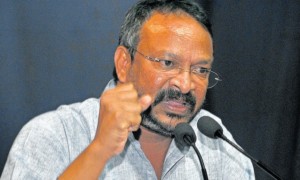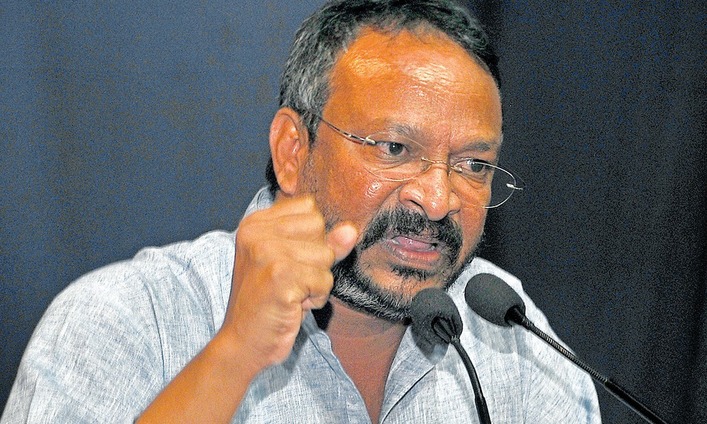
Harpreet Singh
NEW DELHI: As a child in Karnataka’s Kolar district area when he discovered his parents did manual scavenging for a living he wanted to commit suicide. However, better sense prevailed and Bezwada Wilson educated himself and got transformed into a crusader against this evil practice, getting a law against such scavenging passed in 1993. Bezwada Wilson’s Safai Karmachari Andolan would take a crowd of former manual scavengers, mostly women, to demolish dry latrines wherever they could find them. The resulting hullabaloo around the demolition would help Wilson spread awareness about the law against manual scavenging thus bringing down the numbers of manual scavenging from lakhs to a few thousand.
In 2016 Bezwada was honored with Ramon Magsaysay award. Recently invited to deliver the 20th D. S. Borker Memorial Lecture by its Foundation in New Delhi, Bezwada narrated how in school fellow students would address him as thotti (a local word for the menial caste in India). When he would ask his parents what it meant, they would pass it off with some explanation or the other. Finally, the day he discovered what his parents did for a living and the understanding of the reality dawned upon him, he said, he was shocked and wanted to die.
Born in 1966 to a family of ‘untouchables’, as he said, his parents and his elder siblings were all working with manual scavenging jobs. His parents had hidden this from him and wanted to educate him so that he would not have to endure what they had their whole life.
Unable to sleep all night and in turmoil with the existing practice of humans having to clean the latrines of other humans, manually without equipment or machines, and being treated so, he wept alone inconsolably and as the sun rose in the morning, instead of wanting to die, he said he decided to leave his home with the resolve to fight for the eradication of this inhuman and completely abnormal practice still seen as normal in Indian society.
Bezwada Wilson became a full time activist and then one of the founders of Safai Karamchari Andolan (SKA), a human rights organization campaigning for the total eradication of manual scavenging, which has now been illegal in India since a 1993 Act of law. Yet, he reminded that the practice has not ended. There are 1.6 million women still working as manual scavengers and the local officers conveniently turn a blind eye.
He says he only hears Dalits talking about untouchability in public, while all others close their eyes to the subject. Even 71 years after independence, he said, residential areas in villages still continue to be divided on caste lines. He feels this is not only a matter of shame for our country rather a global shame for humanity.
Why he questioned, if we as a Nation can spend our energies and money on sending satellites into outer space, our scientists still haven’t innovated technologies, say for cleaning of sewers, in which manual scavengers die each year because they are expected to clean them physically, at times even without the most basic equipment and safety, because it is considered to be ‘their’ job.
Bezwada Wilson continues to devote his life along with his colleagues of the SKA to campaign for the complete eradication of manual scavenging by raising awareness rallies, advocating for dignified rehabilitation of these workers and filing petitions in courts of law for specific cases including the Supreme Court where petitions are pending since field in 2003.
He ended by saying his vision of India 2047 can therefore only be – No discrimination; No hunger; No poverty and No hierarchy.







